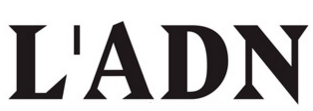[Extracts - More to follow]
Chanel most desirable brand among Chinese affluents: report
调查显示香奈儿是中国有钱人最青睐的品牌

Exclusivity and desirability go hand in hand for China’s wealthy, with the same brands ranked in the top five for both characteristics in a new study by Promise Consulting and BNP Exane. Hermès takes home top prize for exclusivity, which measures the consistent quality of goods, the brand’s prestige, the valuation of the brand’s customers and its ability to justify a high price point. Chinese consumers are generally becoming more sophisticated luxury consumers, making for tougher competition between labels for their attention and affection.
[READ MORE]

Chanel most desirable Brand among Chinese Affluents
Exclusivity and desirability go hand in hand for China’s wealthy, with the same brands ranked in the top five for both characteristics in a new study by Promise Consulting and BNP Exane.
Hermès takes home top prize for exclusivity, which measures the consistent quality of goods, the brand’s prestige, the valuation of the brand’s customers and its ability to justify a high price point. Chinese consumers are generally becoming more sophisticated luxury consumers, making for tougher competition between labels for their attention and affection.
Promise Consulting and BNP Exane’s “Exclusivity and Desirability Barometer” surveyed 600 women among the top 3 percent of households in China in September 2015, asking them about the 30 brands across ready-to-wear, footwear, leather goods and accessories which have made the most investments in communication in the market. This is a follow-up to a survey of French women conducted in May 2015.
[READ MORE]

Unicità, qualità e design spingono i brand in Cina. Hermès, Chanel e Prada tra i top
Il tempo per sé, il rispetto per l'ambiente, l'unicità di un oggetto: la definizione di “lusso” può essere la più personale, ma difficilmente non includerà due aspetti, l'esclusività e la desiderabilità. Due concetti che i brand dell'alta gamma, come alchimisti, cercano di combinare in un equilibrio perfetto, armonizzando due necessità, quella di produrre sogni e ricavi. “Measuring Brand Exclusivity and Desirability - China ” è proprio il nome di un report pubblicato da Promise Consulting e da Bnp Exane, cha indaga quali sono i brand del lusso più esclusivi e desiderabili in Cina, mercato chiave dell'alta gamma: il campione preso in esame è stato di 607 donne fra i 18 e i 54 anni, residenti della Mainland China (che comprende Great China e Hong Kong), con un reddito medio mensile superiore a 20.000 yuan, (circa 2.700 euro), cifra elevatissima se si considera che il reddito medio dei cittadini cinesi nel 2015, secondo il China Statistics Bureau, è stato di 21.996 yuan all'anno.
[READ MORE]

Barometro Promise - BNP Exane "Esclusività e desiderabilità" 2015: le più ricche donne cinesi stilano una classifica dei brand del lusso
Secondo alcuni, quando la Cina starnutisce, il resto del mondo si ammala, eppure i più grandi brand del lusso si stanno affermando in Cina, trasformandosi nei più esclusivi oggetti del desiderio delle ricche donne cinesi. Tuttavia la nostra classifica rivela anche una concorrenza ancor più forte, accentuata dalla crescente maturità dei clienti facoltosi. Questo barometro di Promise Consulting / BNP Exane stila una classifica dei 15 brand più esclusivi e desiderabili in Cina legati all'universo della moda femminile. Il Barometro è condotto tra le donne cinesi più ricche, e analizza i 30 brand del lusso di prêt-à-porter/borse/scarpe/accessori che hanno investito maggiormente nella comunicazione (fonte: Industry Interviews, Exane Paribas).
[READ MORE]

Louis Vuitton’s positive Chinese placement a result of slow, steady growth
In the short term, French apparel and accessories brand Louis Vuitton is on pace to have the best momentum among luxury houses during the Year of the Monkey, per Exane BNP Paribas.
Exane BNP Paribas’ “Chinese Luxury: The Year of Monkey Business” report looks at the current economic climate of China and how the slowdown is impacting luxury brands with a presence in the Mainland and Hong Kong markets. While many brands are concerned regarding the slowdown in Chinese spending, the financial firm suggests that growth for 2016 will match the year-ago.
[READ MORE]

THESE LUXURY BRANDS ARE BEST AT BALANCING EXCLUSIVITY AND DEMAND IN CHINA
How do Chinese women really feel about that next big luxury collection out on the market? Exane, a France-based investment company, has attempted to answer this question with a quantitative analysis of the Chinese shopper’s true desires when it comes to purchasing luxury brands.
The primary findings aren’t news per se, at least according to most market reports. They reveal that luxury stalwarts like Chanel, Dior, and Hermès are what Chinese shoppers think about most when they go to sleep at night—it’s not surprising, then, that Apple looked to Hermès’ timeless leather designs for its latest wearable tech collaboration that attracted droves of China’s fashion-savvy.
[READ MORE]

Classement des marques de luxe préférées des Chinoises fortunées : BNP Exane et Promise Consulting dévoilent le classement des marques de luxe par les Chinoises fortunées. Chanel et Hermès arrivent en tête du classement.
En collaboration avec BNP Exane, Promise Consulting, société de conseil et d'études en marketing, publie les résultats de la 2ème vague du Baromètre Promise Consulting - BNP Exane " Exclusivité & Désirabilité 2015 ". Ce baromètre met en avant les 15 premières marques jugées les plus exclusives et les plus désirables en Chine dans l’univers de la Mode féminine. Ce Baromètre est établi auprès des femmes chinoises les plus fortunées et porte sur les 30 marques de prêt-à-porter, sacs, chaussures et accessoires dans l’univers du luxe qui ont le plus fortement investi en communication (Source : Industry Interviews, Exane Paribas). Promise Consulting et BNP Exane avaient conduit la même étude auprès des femmes Françaises au cours du mois de Mai 2015.
[READ MORE]

Cina, le donne ricche adorano il lusso francese
Le maison francesi dominano per esclusività e i marchi più esclusivi sono anche i più ambiti. È questo l’identikit del desiderio per le donne cinesi. Un’indagine di Promise Consulting e BNP Exane stila una classifica dei 15 brand più esclusivi e desiderabili in Cina legati all’universo della moda femminile. Una classifica che rivela anche una concorrenza sempre più forte, accentuata dalla crescente maturità delle clienti facoltose, il 3% della popolazione che appartiene alla fascia più ricca.
[READ MORE]

Chanel most desirable brand among Chinese affluents: report - Luxury Daily - Research
Chanel’s interlocking C’s Exclusivity and desirability go hand in hand for China’s wealthy, with the same brands ranked in the top five for both characteristics in a new study by Promise Consulting and BNP Exane. Hermès takes home top prize for exclusivity, which measures the consistent quality of goods, the brand’s prestige, the valuation of the brand’s customers and its ability to justify a high price point. Chinese consumers are generally becoming more sophisticated luxury consumers, making for tougher competition between labels for their attention and affection. Promise Consulting and BNP Exane’s “Exclusivity and Desirability Barometer” surveyed (...)
[READ MORE]

Barometer Promise - BNP Exane "Exclusivity & Desirability" 2015: The Wealthiest Chinese Women Rank Luxury Brands
Some say that when China sneezes the rest of the world catches cold, butthe biggest luxury brands are catching on in China, becoming the most exclusive and desirable ones in fashion according to the wealthiest Chinese women. Still, our ranking also reveals a stronger competition that is accentuated by the wealthy customers' increasingly stronger maturity. This barometer Promise Consulting / BNP Exane classifies the 15 most exclusive and desirable brands in China in the universe of feminine Fashion (...)
[READ MORE]

Barometer Promise - BNP Exane "Exclusivity & Desirability" 2015: The Wealthiest Chinese Women Rank Luxury Brands
"This barometer in association with BNP Exane reflects our determination to move closer to the marketing and cross-section financial analysis. Our Monitoring Brand Assets® approach itself features very complementary analyzes with those conducted by BNP Exane's experts. Hence, the obtained results from our joined barometer are based on two different angles of expertise, marketing and financial, which brings a unique added value to the managers and decision-makers inthe Luxury sector (...)" [Philippe Jourdan, CEO]
[READ MORE]

Barometro Promise - BNP Exane "Esclusività e desiderabilità" 2015: le più ricche donne cinesi stilano una classifica dei brand del lusso
"Questo barometro in collaborazione con BNP Exane riflette la nostra determinazione ad avvicinarci all'analisi di marketing e all'analisi finanziaria cross-section. Il nostro approccio Monitoring Brand Assets® tiene conto sia delle analisi complementari che di quelle condotte dagli esperti di BNP Exane. Ecco perché i risultati così ottenuti si fondano su due diverse prospettive, sia di marketing che finanziarie, offrendo così uno straordinario valore aggiunto ai manager e ai decision-maker nel settore del lusso. (...) [Philippe Jourdan, CEO]
[READ MORE]

Promise Consulting se penche sur la désirabilité des marques de luxe en Chine
Le cabinet de conseil et d'études en marketing Promise Consulting collabore à nouveau avec BNP Exane afin de faire ressortir le classement des marques de luxe jugées les plus « exclusives » par les clientes sur le territoire chinois. Ce baromètre a été établi auprès de 600 femmes chinoises (18-54 ans) appartenant aux 3% de foyers aux revenus les plus élevés, et porte sur les 30 marques de luxe, prêt-à-porter, accessoires et maroquinerie confondus, qui ont réalisé les plus gros investissements en matière de communication.
[READ MORE]

Enquête : L’Exclusivité et la Désirabilité des marques de luxe en 2015
Les résultats d’une grande enquête sur le luxe viennent d’être révélés par le cabinet Promise Consulting. Ce baromètre réalisé en partenariat avec BNP Exane a rapproché la vision marketing et la vision financière et porte sur 15 marques de luxe dans l’univers de la mode.
Chanel remporte tous les suffrages dans les deux études
« Le raffinement de ses collections de Haute Couture, le succès de ses collections Croisière et Prêt-à-porter, l’hommage rendu aux Métiers d’Art dans une ville différente chaque année, l’investissement dans le domaine de la Haute Joaillerie depuis 1987 participent à l’ascension de la marque au tout premier plan. Ce résultat n’est donc pas surprenant et récompense un investissement conséquent, cohérent, maintenu dans la durée et très qualitatif » explique Philippe Jourdan, CEO de Promise Consulting.
[READ MORE]

BAROMETER PROMISE - BNP EXANE "EXCLUSIVITY & DESIRABILITY" 2015: THE WEALTHIEST CHINESE WOMEN RANK LUXURY BRANDS
[WATCH THE VIDEO]

Some say that when China sneezes the rest of the world catches cold, but the biggest luxury brands are catching on in China, becoming the most exclusive and desirable ones in fashion according to the wealthiest Chinese women. Still, our ranking also reveals a stronger competition that is accentuated by the wealthy customers’ increasingly stronger maturity. This barometer Promise Consulting / BNP Exane classifies the 15 most exclusive and desirable brands in China in the universe of feminine Fashion.
[READ MORE]

Chinese consumers love their Chanel and Hermès – 7/2/16
Exclusivity and desirability go hand in hand for China’s wealthy, with the same brands ranked in the top five for both characteristics in a new study by Promise Consulting and BNP Exane. Luxury Daily reports that French luxury house Hermès takes home top prize for exclusivity, which measures the consistent quality of goods, the brand’s prestige, the valuation of the brand’s customers and its ability to justify a high price point.
[READ MORE]

Barometer Promise - BNP Exane "Exclusivity & Desirability" 2015: The Wealthiest Chinese Women Rank Luxury Brands
Some say that when China sneezes the rest of the world catches cold, but the biggest luxury brands are catching on in China, becoming the most exclusive and desirable ones in fashion according to the wealthiest Chinese women. Still, our ranking also reveals a stronger competition that is accentuated by the wealthy customers' increasingly stronger maturity. This barometer Promise Consulting / BNP Exane classifies the 15 most exclusive and desirable brands in China in the universe of feminine Fashion. (...)
[READ MORE]